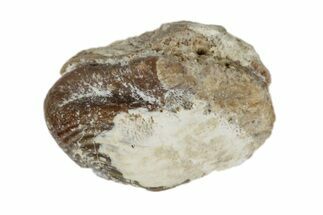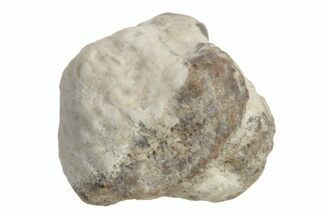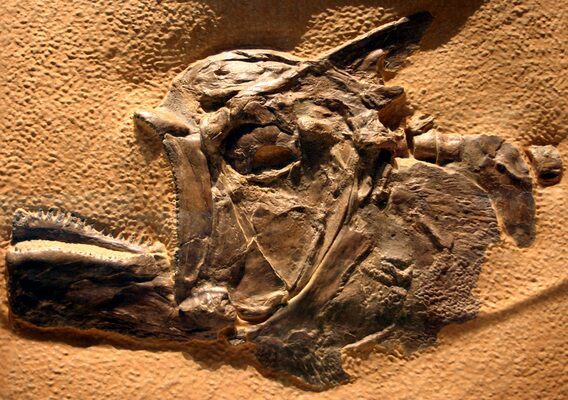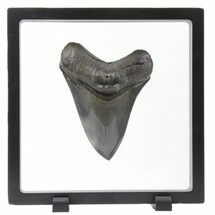This Specimen has been sold.
2.1" Fossil Fish (Ichthyodectes) Vertebrae - Kansas
This is a 2.1" long string of two naturally associated vertebrae from Ichthyodectes (meaning fish biter with comb teeth), closely related to Xiphactinus audax and the 2-meter long Gillicus arcuatus. Large ichthyodectes grew to more than 10 feet long and lived in the U.S. Western Interior Seaway during the late Cretaceous Period. This natural bone association was collected from the Smoky Hill Chalk in Gove County, Kansas.
The Smoky Hill Chalk Member of the Niobrara Chalk formation is a Cretaceous conservation Lagerstätte, or fossil-rich geological formation, known primarily for its exceptionally well-preserved marine reptiles. It outcrops in parts of northwest Kansas--its most famous localities for fossils--and in southeastern Nebraska. Large, well-known fossils excavated from the Smoky Hill Chalk include marine reptiles such as plesiosaurs, large bony fish such as Xiphactinus, mosasaurs, pterosaurs, and turtles.
SPECIES
Ichthyodectes sp.
LOCATION
Gove County, Kansas
FORMATION
Niobrara Formation
SIZE
2.1" long
CATEGORY
SUB CATEGORY
ITEM
#136467
We guarantee the authenticity of all of our specimens.
 Reviews
Reviews















